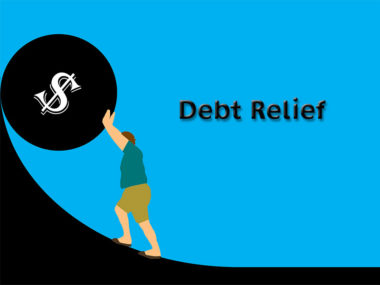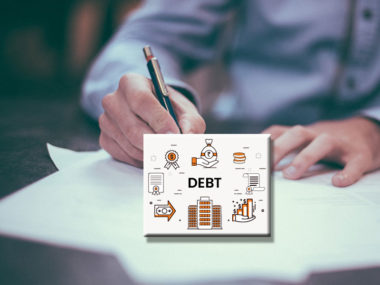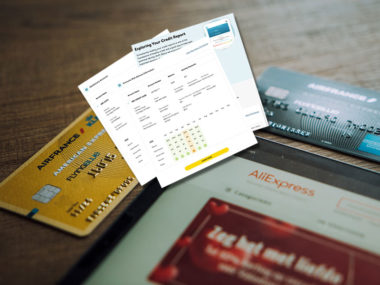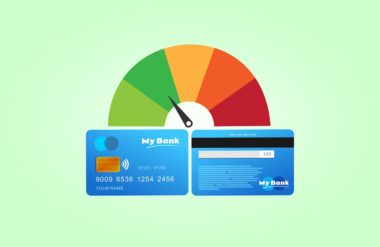Bad habits are easy to make and hard to break. For some of us, those bad habits are financial. In some cases they are pretty obvious, and it’s about facing the problem and correcting it. For others, it can be difficult to spot the problem in order to find its solution. If your money management isn’t lining up quite right, you may have a bad habit affecting your finances. By spotting the money holes, knowing which bad habits are relatively common, taking steps to correct the problem/s, and knowing the risks of letting poor choices affect your budget, your finances have a chance to rebound.
Table of Contents
Finding the Money Holes
So it’s time to pay your bills and you’re short – again. You’ll have to pay a couple of bills a little bit late. So you take money from your next paycheck to pay bills meant for this paycheck. But then you’ll be late for next month’s bills… And that’s how easy it is to fall into a cycle of being behind on payments. Finding the cause of being short on your living expenses each month involves creating a personal budget that fits your lifestyle. In doing so, you’ll find the areas that aren’t fitting quite right. Dig through your purchases and find the expenses that you don’t necessarily need. You might be surprised just how easily a coffee every morning, a shopping trip every month, or a costly cable bill can add up. If you aren’t living within your means, change your spending habits.
Smoking, eating out, frequent travel, too many nights out, and even excessive saving are all bad habits that lead to the bad financial habit of overspending. Overspending leads to missed bill payments, missed bill payments lead to debt, debt leads to bad credit, and so on. Your bills need to be your number one priority, so if you can’t pay those, you have a money hole somewhere that you need to fix. Your finances should be an investment for you, not a burden.
Common Habits to Break
Some bad habits are sort of brushed aside as not being that big of a deal. In truth, they may not be. However, it’s far too easy to see a bad habit snowball, so it’s best to stay on the financially straight and narrow. Some common financial habits with negative consequences are:
- Paying bills late
- Ignoring debt
- Overspending
- Spending incorrectly
- Not saving
Nobody’s perfect, so it’s important to forgive a late credit card payment that you forgot once, or a shopping trip that got out of hand. If it’s a pattern affecting your finances long term, it’s time to break the habit.
Correcting Bad Behavior
If you’re in a pattern of bad behavior with your finances, you’ll need to correct it or risk the consequences. Once you’ve created a personal budget outlining how much you make, how much you owe, and how much your living expenses are, you’ll get a better idea of where your money should be going every month. If you have a problem paying bills on time, discuss automatic bill pay. Get on top of your debt and get a schedule in place to start paying it off. If you’re overspending, remove the toxic spending from your budget and force yourself to stick to it. Eating out and going shopping is okay, but only if your finances have taken care of all of your needs first. You should never be spending more money than you are making.
Maybe you aren’t overspending, but you’re not spending correctly. If you need to spend money, spend it on things that can be investments for you. Learn how to stretch your dollar when you’re spending money on things like groceries or clothing. You should also be saving money and contributing to a savings account as religiously as you would if it was another bill. This will ensure you have a cushion if you find yourself in a financial emergency.
Potential Risks
There are many other bad financial habits people are guilty of, whether it’s using your credit card irresponsibly, only paying the minimum on loans, or putting off retirement savings. These bad habits may seem small, but the longer they exist the more at risk you are for serious penalties. Late rent payments can ruin your rental applications in the future, late bill payments can ruin your credit, and not having a savings account can put you in financial peril in an emergency.
If you’re relying on your credit card to get you by, you’re using your credit card incorrectly. Paying the minimum on loan payments isn’t paying enough towards your principal, leaving you in a constant state of debt. If you aren’t preparing for retirement now, you’re robbing yourself of money later in life. The earlier you begin saving, the less you’ll have to save every month as you get older.
The more your debt begins to snowball, the less you are able to pay off, and the more you spend irresponsibly, the more likely you’ll be to having your wages garnished or having to file bankruptcy. Bad decisions with your finances can follow you for the rest of your life, preventing you from buying a home, borrowing money for school, or even getting hired for certain positions. There are many ways to help build your credit back up, rent a home with bad credit, or get certain types of loans with bad credit – but it’s best to avoid those steps and nip bad habits in the bud before they become something that you need to rebuild from.
Getting rid of bad financial habits doesn’t mean you can’t ever have drinks after work or splurge on vacation, it just means taking hold of any problematic habits that happen frequently enough to cause holes in your finances. By finding your problem areas and working to correct them, you can live within a healthy budget created to work with your lifestyle and not against it. As a result, if you want that fancy coffee in the morning, you can get it.
Image source: https://pixabay.com/





